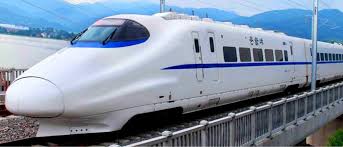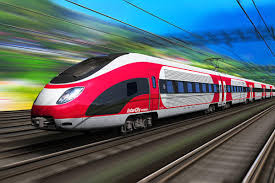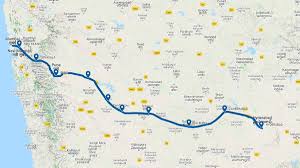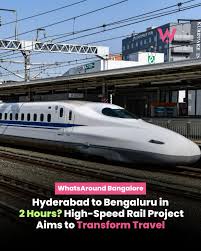Bullet Train in Hyderabad
Bullet Train in Hyderabad: A Detailed Insight into Government Orders and Project Developments
flixah developers pvt ltd
3/17/20253 min read


Bullet Train in Hyderabad
Bullet Train in Hyderabad: A Detailed Insight into Government Orders and Project Developments
Introduction
The introduction of a bullet train in Hyderabad marks a significant step towards modernizing India’s railway infrastructure. With increasing traffic congestion and growing demands for faster transportation, high-speed rail can revolutionize the way people travel. This article explores the government’s plans, policies, and project details for Hyderabad’s upcoming bullet train.
The Need for a Bullet Train in Hyderabad
Growing Population and Transportation Challenges
Hyderabad, one of India’s fastest-growing metropolitan cities, faces significant transportation challenges. With over 12 million residents, the city’s roadways and public transport systems are under immense pressure. A bullet train system can alleviate congestion and provide a faster alternative to conventional travel.
Existing Railway and Metro Infrastructure
Hyderabad currently relies on the Hyderabad Metro, MMTS (Multi-Modal Transport System), and traditional Indian Railways for urban and intercity travel. While efficient, these services are not sufficient to meet the rising demand for ultra-fast travel.
Economic Benefits of High-Speed Connectivity
The bullet train will reduce travel time between major hubs, boost intercity trade, and improve Hyderabad’s connectivity to other economic corridors. The project is expected to create thousands of jobs and attract significant investments.
Government Initiative and Policy Framework
Role of Central and State Government
The Indian government has been actively pushing for high-speed rail projects across various cities. The Hyderabad bullet train is a joint initiative between the Central Government and the Telangana State Government under the Ministry of Railways.
Past Discussions and Feasibility Studies
Feasibility studies for the Hyderabad bullet train project have been conducted over the past five years, considering route planning, land acquisition, and funding sources. Reports suggest that the project is economically and technically viable.
Policy Support and Legal Framework
Government regulations related to land acquisition, environmental clearance, and foreign investment have been streamlined to facilitate smooth execution. The National High-Speed Rail Corporation Limited (NHSRCL) is overseeing the project.
Project Approval and Funding
Budget Allocations and Financial Planning
The estimated cost of the Hyderabad bullet train project is around ₹1.5 lakh crore. Funding sources include government grants, international loans, and private sector investments.
Collaboration with International Partners
The project is likely to collaborate with Japan, China, and European nations for technological and financial assistance. The use of Japanese Shinkansen technology has been proposed for this corridor.
Public-Private Partnership (PPP) Model
A PPP model will be used to share risks and responsibilities between the government and private investors.
Proposed Route and Connectivity
Expected Stations and Routes
The proposed bullet train will connect Hyderabad with major cities like Bengaluru, Chennai, and Mumbai. Key stations include:
Hyderabad (Begumpet Station)
Shamshabad (Near Rajiv Gandhi International Airport)
Warangal
Vijayawada
Integration with Existing Transport Systems
The bullet train will be integrated with Hyderabad Metro, airport express lines, and suburban rail networks.
Estimated Travel Time and Ticket Pricing
The bullet train is expected to run at speeds of 320-350 km/h, reducing travel time between Hyderabad and Bengaluru to less than 2 hours. Ticket prices are estimated to range from ₹2,500 to ₹5,000, depending on distance and class.
Technological Aspects and Infrastructure
Features of Bullet Train Technology
Magnetic levitation (Maglev) and Shinkansen-style technology
Automatic signaling and AI-driven safety mechanisms
High-speed electric propulsion for energy efficiency
Construction Plans and Timelines
The project is expected to take 7-10 years, with the first phase operational by 2032.
Safety Measures and Efficiency
Advanced safety features include earthquake detection systems, fireproof coaches, and collision prevention technology.
Challenges and Roadblocks
Land Acquisition Issues
Land acquisition for stations and corridors remains a challenge, with resistance from local farmers and property owners.
Cost Overruns and Delays
High infrastructure costs and funding delays could impact the timeline.
Public Concerns and Opposition
Some citizens express concerns over high ticket prices and environmental impact.
Conclusion
The Hyderabad bullet train project is a landmark initiative that promises economic growth, job creation, and faster travel. However, successful implementation will require government support, public cooperation, and strategic planning. If executed effectively, this project can transform Hyderabad into a global transportation hub.
FAQs
What is the expected launch date of the Hyderabad Bullet Train project?
The first phase is expected to be operational by 2032.How fast will the bullet train in Hyderabad travel?
The estimated speed is 320-350 km/h.What will be the estimated ticket price?
The ticket price is expected to range from ₹2,500 to ₹5,000.What are the major stations on the route?
Key stations include Hyderabad, Shamshabad, Warangal, and Vijayawada.How will the project impact real estate and infrastructure in Hyderabad?
It will boost property values, attract investments, and enhance urban infrastructure.
for more info about property investment and real estate updates please follow our page and social network please visit flixahdeveloperspvtltd.com
follow us on :






